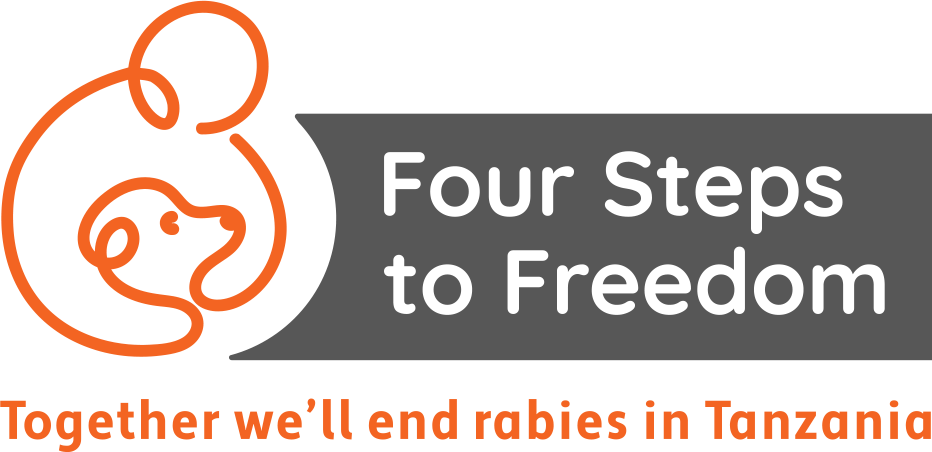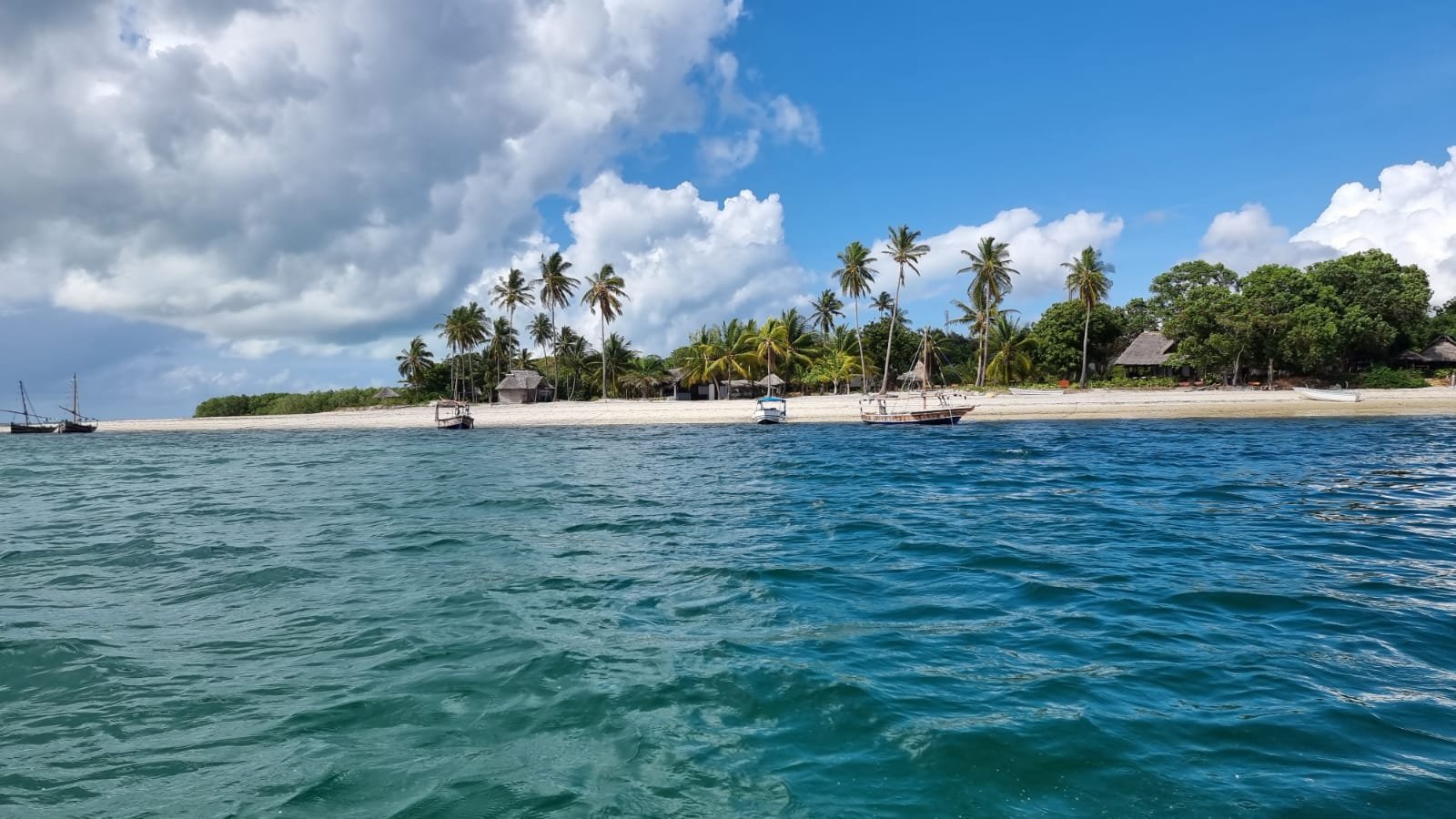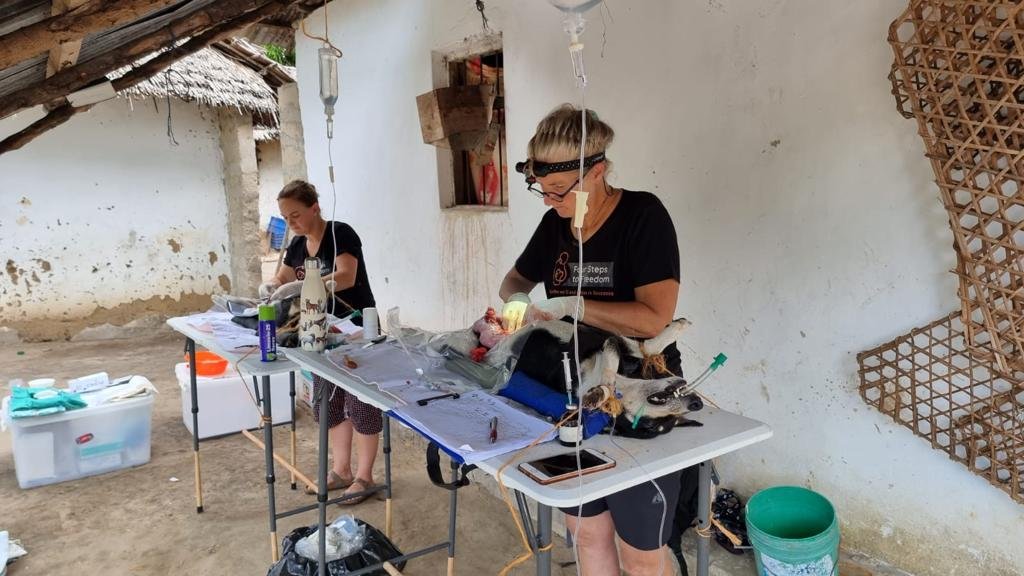Mafia Island: a tropical paradise under threat from rabies
Pristine waters, coral reefs, mangrove forests and lagoons: Mafia Island, 11 miles from the coast of Tanzania is home to a population of 40,000 year-round inhabitants and a steady flow of intrepid tourists attracted by the promise of world-class diving and a taste of unspoiled, tropical paradise.
Paradise under threat
Yet all is not as idyllic as it sounds for the local communities on the island: the free roaming dog and cat populations of Mafia Island are on the rise and as the populations grow, so too does the risk of rabies. It is vital that the animal populations, and with them, the rabies risk, are actively managed and kept under control.
Mafia Island: a tropical paradise under threat
In 2018, the government implemented a dog cull. The result was the tragic shooting of around 200 dogs, most of whom were domestic village dogs. The team at Eco Shamba Kilole (ESK) Lodge, longstanding campaigners for animals and humans on the island, managed to stop the cull, and subsequently started working with Worldwide Veterinary Services (WVS). Together with the (then) District Executive Director, they made a memorandum agreement, committing to stop the shooting of dogs on the island, however, this only lasted three years.
Continuing over 18 years of commitment to the community and animals of the island, the ESK Team, with the support of WVS took on the responsibility of coordinating and hosting regular animal spay, neuter and vaccination campaigns to control the threat of rabies and protect the future of animals and humans on Mafia Island.
Life on Mafia Island is threatened by the risk of rabies
Sadly, with global travel having been disrupted since the advent of COVID-19 in January 2020 it has been impossible to bring the necessary veterinary personnel & supplies to the island. As a result, the anti-rabies campaigns have been on hold - with potentially disastrous consequences for the population of Mafia.
The WVS partnership was to make a real difference in showing that the dog culls were not only inhumane and dangerous, but also not necessary, it is a fact that sterilisation campaigns are significantly more effective and cheaper at controlling dog populations. Now, the three-year memorandum agreement is over. The government could start culling dogs again at any time.
A window of opportunity
In November 2021, global travel restrictions eased, opening a window of opportunity. Four Steps to Freedom were ready. The team from Eco Shamba Kilole Lodge organised an emergency anti-rabies and sterilisation campaign and called on our Tanzanian partner charity Mbwa Wa Africa Animal Rescue for support providing the veterinary personnel necessary to allow the campaign to go ahead, while Worldwide Veterinary Service provided much needed medical supplies and Mission Rabies stepped in to provide vaccines.
Our volunteer vet team stepped up to the challenge
Our volunteers were ready to rise to the challenge. Together with Mbwa Wa Africa Animal Rescue we were able to provide three volunteer veterinary professionals including two long-term Mbwa Wa Africa Animal Rescue volunteers, veterinary surgeon Dr Nancy Rogge and veterinary nurse Nicole Bottomley, as well as veterinary surgeon Dr Susan Bell, who travelled from Scotland to support the campaign. Susan had experience of an earlier anti-rabies and sterilisation campaign on Mafia Island as a volunteer with Worldwide Veterinary Service, and was eager to return to continue the vital work. She explains how important the cause is to her:
“The first time I went to Mafia Island was WVS’ 2 week campaign in March 2020, when Covid-19 hit and we had no choice but to stop the campaign a week early and return home before lockdown travel restrictions. We were devastated that the hard work gone into organising the campaign had to be abandoned, so I was determined to return.
When I heard Mbwa wa Africa were arranging a campaign on the island, I had to go. I was able to bring supplies from the UK provided by WVS and extra (thanks to my family!) for the Mbwa wa Africa Clinic in Arusha, where certain supplies are not readily available.
The campaign’s 20-month delay made things challenging on the island and there is still a lot of catching up required to achieve the original goals. I pray the government dog culls are not restarted as not only is shooting dangerous, but there is proof that it doesn’t reduce the dog population or the risk of rabies in the long term.
I am very hopeful that the positive impact of educating, vaccinating, and sterilising will be visible in the community, and we will be granted permission for future campaigns, where people can see the effects of the campaigns and approach us about our work.
I cannot wait to return to Mafia Island and make a difference to the people, dogs and cats of the island to maintain a safe, rabies free environment.
A challenging campaign
Susan, Nancy and Nicole set up mobile clinics in several different locations across Mafia island, where permissions allowed, including at Eco Shamba Kilole Lodge in Utende, Bustani Lodge in Kilindoni and in an area called Kitoni. Two days were also spent on neighbouring Chole Island, where there are no dogs but a growing cat population. The campaign was not short of its challenges. Due to most dogs and cats never having been handled before, the team had to catch them in order to perform vaccinations or other procedures. It is vital that this is done carefully for the safety of the animals and the people handling them, to minimise the risk of bite wounds and rabies. Vet Nancy explains:
“Catching the dogs was a challenge. The local population has not had the education needed to help them realize that dogs and cats can be more than utilitarian animals - the dogs are more feral than those back in Arusha! They all had to be netted, and the cats had to be trapped.”
In order for Susan, Nancy and Nicole to carry out the maximum procedures, some experienced local people stepped in, helping to catch the dogs and take them to the mobile clinics. Susan describes how one local assistant was vital to boosting their productivity:
A local hero on Mafia Island
“This is our most wonderful assistant, who has a lot of experience handling the animals, having helped with similar campaigns in the past. He goes, along with others, to find animals who need our services and where they are not used to being handled, he catches them carefully in nets to bring to the clinic. Once they have recovered from their anaesthetic and operation, he will return them to where they belong. He is a wonderful asset.”
Susan says; “This little puppy was too young to neuter, but he had a rabies vaccination and treatment for a severe lice infestation. We were quite itchy after cuddling him, but it was worth it!”
On Chole Island, there are no dogs, but our team did their utmost to treat as many feral cats as possible. Susan explains,
“Chole island is a great place to spend a couple of days of the campaign, however it is quite challenging as getting to the island is very tide-time dependent and we are dealing with feral cats, who must be caught in our ten traps baited with fish. One day, we only managed to operate on nine cats. The tenth trap was teeny tiny kittens, too small for sterilisation, but all of them had Rabies vaccination and treatment for parasites. Although the traps were reset, it is so hot in the daytime that the cats will prefer to be off lounging, rather than out looking for food so it is difficult to catch more. Hopefully we will be able to provide more traps next time.
Our feline patients recover on Chole Island
A positive impact
We were delighted to be able to play a part in the Mafia Island campaign, helping secure a safer future for the island at a time of global uncertainty. Our vet campaign lasted 8 days, during which time 68 animals were sterilised and many more vaccinated Congratulations team!
We would like to give our special thanks to the volunteer vets and nurse, Dr Susan Bell, Dr Nancy Rogge and Nicole Bottomley. Mission Rabies provided essential vaccines. Coastal Aviation stepped in to offer free flights to bring one of the volunteers from Arusha to Mafia Island, whilst food, lodgings and island transportation were very generously provided by the owners of Eco Shamba Kilole Lodge. Mama Connie, a retired nurse living in Kanga, who also cares deeply about this cause kindly hosted for a day and night in Kanga to allow the campaign to cover some of the more remote north of the island. Thank you also to Bustani Lodge for allowing us to set up a clinic in their grounds and to Big Blu Diving for making our vets time off especially memorable.
The team enjoy local hospitality after a long day of work on Mafia Island
Of course, a big thank you to all our supporters who have contributed to Four Steps to Freedom, without whom, this campaign would not have been possible.









